Translations 677
One Story, Multiple Readings

One Story, Multiple Readings
Published: Tuesday 12 January 2021 | 08:41:40 pm
When talking about the Middle Ages and Antiquity in Europe and its nearby territories, it seems that women were always subject to male power
Author: Mileyda Menéndez Dávila

Translated and edited by Walter Lippmann for CubaNews.

Viking culture promoted equity between men and women. Author: Taken from www.filo.news Published: 12/01/2021 | 07:57 pm
When talking about the Middle Ages and Antiquity in Europe and its nearby territories, it seems that women were always subject to male power, without the right to participate or manipulated in government debates, relegated to the role of feeding themselves, excluded from war, science or other basic functions for the human group to which they belonged.
This is what those who consider the concept of equity as a recent “invention” say, and how they describe matriarchy as a system of male slavery and humiliation.
Recent archaeological findings and new readings of ancient texts from a feminist perspective agree that, although misogyny and patriarchy were widespread in many regions with similar expressions, there were civilizations in which women lived alongside men and played important social roles.
Supposedly barbaric and backward cultures, such as that of the Vikings and the one that inhabited India before the Aryan invasions, left evidence of a respectful and even venerable treatment of women and people of non-binary gender in their beliefs, traditions and social structure.
Preserved manuscripts from those times and legends that have survived orally indicate that in addition to respecting the right of women to decide about their bodies and to choose partners of any caste, an infinite number of tribes and clans validated non-heterosexual practices (common among warriors and priestesses), and ambivalent gender identities, visible in graphic representations of everyday life and of their gods and goddesses, which also abounded.
Respectable evidence
In the case of the Vikings, the journal Economics and Human Biology published a study that correlates the nutritional health of the Scandinavian population between ten and 15 centuries ago with the social values that intended equity by gender and age.
Biochemical tests confirm, by the quality and development of the bones found in several settlements, that women were free and active, and from birth they ate at the same time as adult men, not at the end.
Many were trained for war, fishing and hunting, led groups and inherited positions and properties. The most revered were the Valkyries: large women who collected dying and dead bodies in battle to help them move, according to their traditions, into the eternal and sacred world they called Valhalla.
Those customs of the Nordic “savages” were a shock for the descendants of the Greco-Latin culture, who built palaces and roads, dominated the arts and agriculture, but in their cultured cities women had no right to study or own property, did not talk to other men and could be given away as servants by their fathers, brothers, husbands and sons.
The legislations of the current Nordic countries, heirs to the Viking culture, guarantee effective and palpable justice without gender discrimination, while many states born of the Judeo-Christian forge cling to a patriarchal hierarchy in homes and social spaces that has unleashed many wars and justified discrimination for hundreds of generations.
Other archaeological findings of the mid-twentieth century in well-preserved ancient cities, but hidden by nature, confirmed the respect for women as a source of life in the Indus civilization, without such deference to represent for men an economic or social disadvantage, as told in the book Tantra, the cult of the feminine, which we can provide to our readers by digital means.
That tradition of honoring the Mother as a social being (not only as a producer of labor) disappeared with the caste system imposed after the northern invasions, when girls and women became, along with the cattle, a resource to be exploited by the conquerors to survive in hostile terrain and to adapt genetically to the climate.
Also in pre-Columbian America and the original African societies there were stages and cultures in which women flourished alongside their male counterparts. As in other processes of conquest throughout the world, were the hosts “civilizing” which established the male hierarchy to control the lines of inheritance in the territories razed.
By (re)knowing these versions of common history, humanity is better able to write its present and place dignity as the essential value promoted by the Magna Carta of almost all nations.
If the Capitol Assailants had been Black?

TODAY IN HISTORY
What if the assailants at the Capitol had been African Americans?
In the 1940s and 1950s, the segregationists adopted the flag as the emblem of their battle to prevent movements that emerged to advance the rights of African Americans. In essence, it represents the racist southern culture
It was not by chance that a mob of supporters of President Donald Trump, all of them white-skinned, razed the Capitol’s fences, pounced on the police guarding the building and, with little resistance, forcibly entered the compound. Nor was it by chance that one of them walked through the corridors waving an enormous “confederate” flag.
This was possible because hours earlier, Trump had incited them in the Save America march, to support him in a desperate and last attempt to prevent Congress from certifying Joe Biden’s already recognized victory.
It was, moreover, a racist assault. No African Americans participated in that violent demonstration, and the Confederate flag, a historic symbol of racism and the defense of slavery in the United States, was flown for several hours without being stopped by any police officer.
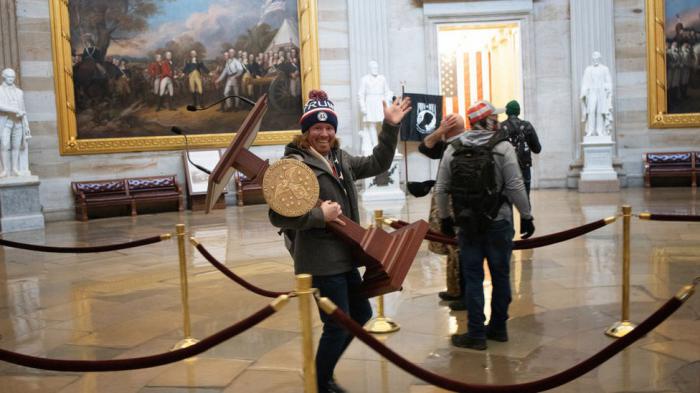
Photo: Reuters
Some of the leaders of the demonstration, identified as members of extreme right-wing conspiracy theory and white supremacist organizations, are trying to distance themselves from the vandalism, claiming that the destruction was caused by anti-fascists.
But the police have already located and arrested Jacob Anthony Chansley, known as Jake Angeli, who is considered the “shaman” of the QAnon. Members of the QAnon movement, which appears to have begun in October 2017, consider Trump a hero.
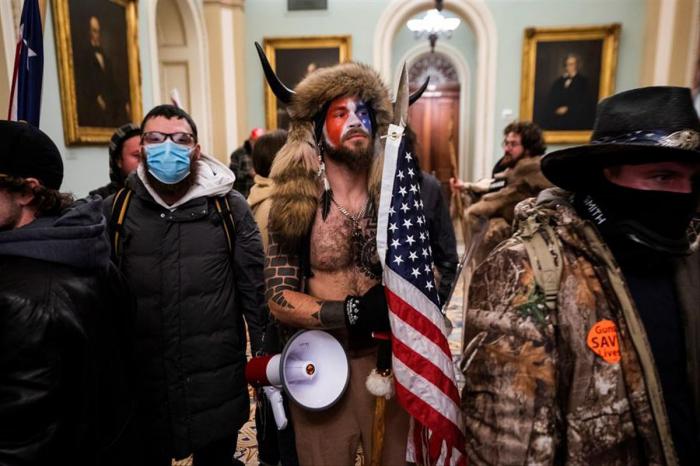
Trump supporters stormed the Capitol after a march in support of the outgoing president. Photo: Reuters
Its militants believe an unfounded theory. They say that President Trump is waging a secret war against pedophiles from the elite of the U.S. government, business and media who worship Satan, and that one day there will be a reckoning among political figures like former presidential candidate Hillary Clinton.
In this case, Jake Angeli is the man photographed inside Congress with his face painted and dressed in a bearskin and horns on his head. In addition, he carried a spear with an American flag tied to the blade, and who calls himself “The Wolf of Yellowstone.”
Richard Barnett, a follower of President Trump, is also in custody. He is pictured sitting in the office of U.S. House Speaker Nancy Pelosi.
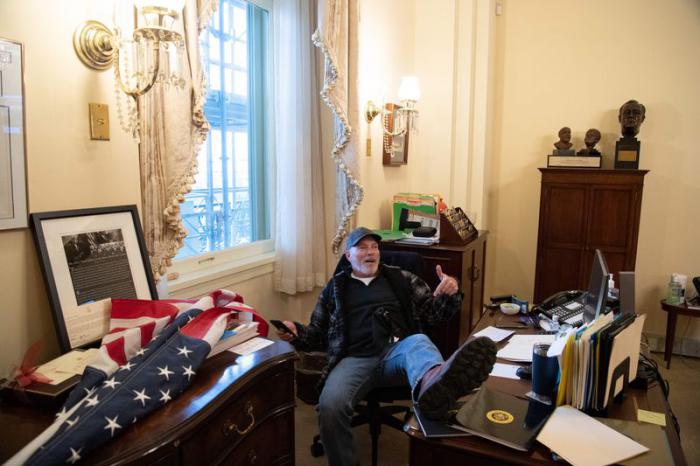
Trump supporters stormed the Capitol after a march in support of the outgoing president. Photo: Reuters

Trump supporters stormed the Capitol after a march in support of the outgoing president. Photo: Reuters
Adam Johnson, who was photographed taking Pelosi’s lectern, also remains in police custody.
WHAT IF THE ASSAILANTS AT THE CAPITOL HAD BEEN AFRICAN-AMERICANS?
The Black Lives Matter Global Network Foundation, an international and decentralized movement originating within the African American community, stated:
“When African Americans protest for our lives, we often encounter National Guard troops or police armed with assault rifles, shields, tear gas, and combat helmets.
“When whites attempt a coup, they run into a small number of agents who can’t do anything and who even take selfies with the terrorists,” they said.
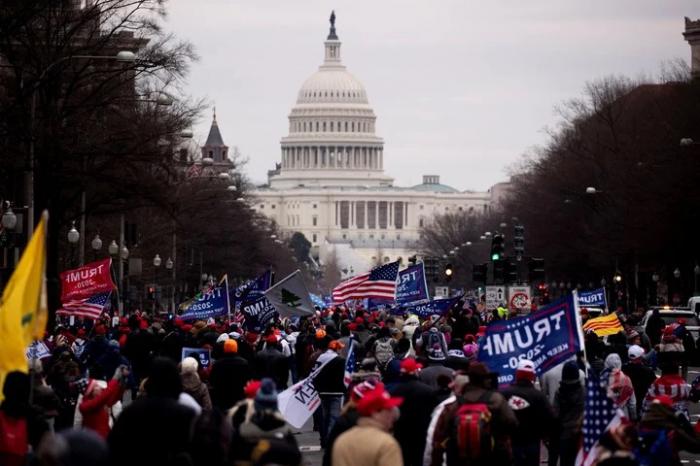 A statement on Twitter was written by Michelle Obama, wife of Barack Obama, the first Black president of the United States:
A statement on Twitter was written by Michelle Obama, wife of Barack Obama, the first Black president of the United States:
“To those who criticize others as unpatriotic for simply kneeling in protest, to those who wonder why we even have to remember that Black lives matter, it has become painfully clear that some Americans are, in fact, allowed to degrade the flag and symbols of our nation. What do they have to say now?”
What do Joe Biden and Donald Trump think about January 6?
NBA legend LeBron James was blunt in his denunciation:
“We live in two Americas. “If people like me – African Americans – had stormed the Capitol, what would have been the result? I think we all know. We know what would have happened to them if they had approached the Capitol, let alone entered the offices and the hallways.”
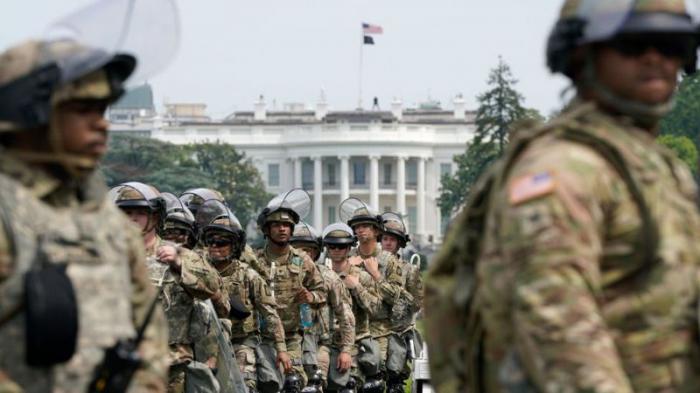
Photo: Reuters
Florida Senator Marco Rubio released a video on Friday comparing the attack on the Capitol by supporters of President Donald J. Trump with protests by Black Lives Matter, the racial equality and justice movement.
Rubio said the invasion of Congress was similar to the protests the left had been “justifying” last summer in cities across the United States following the murder of George Floyd, an African American who died in Minneapolis police custody.
So far, more than 80 people have been arrested and four died in the assault on the Capitol. Police found 11 Molotov cocktails on an Alabama man.
THE CONFEDERATE FLAG CARRIED BY THE CONGRESSIONAL ASSAILANTS
Between 1861 and 1865 a civil war developed in the United States that confronted the southern states (Confederates) that defended, contrary to the foundations of the northerners whose leader was Abraham Lincoln, the maintenance of slavery in the states of South Carolina, Mississippi, Florida, Alabama, Georgia, Louisiana, Texas, Virginia, Arkansas, Tennessee and North Carolina.
After the defeat of the Confederate states, the banner carried by their troops in the civil war reduced its public presence but reappeared in the mid-twentieth century with racial segregation.
The first Confederate flag was composed of two red bars and a white one in the middle, with a blue box in the upper left that had a circle formed by stars. However, its successor, the red one, which contains a blue cross with white borders and stars, was the one that became popular. It was the symbol of the Battle of Virginia.
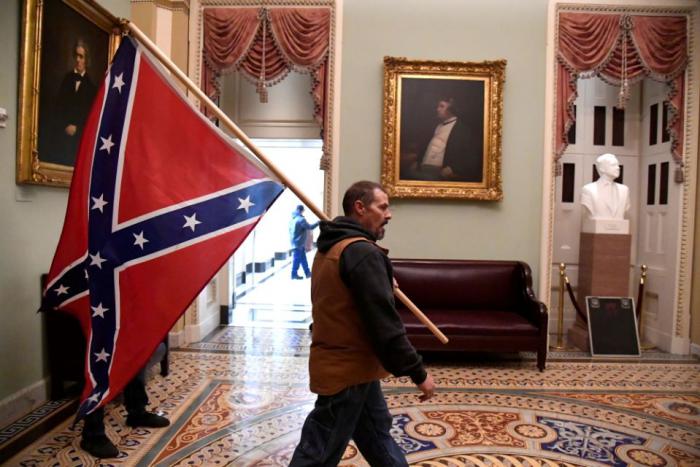
Trump supporters stormed the Capitol after a march in support of the outgoing president. Photo: Reuters
In 1863, the Confederate Congress recognized the Northern Virginia flag as its official symbol.
The descendants of Civil War veterans placed it on the nation’s monuments, so it gradually became an icon of Southern culture
In the 1940s and 1950s, segregationists adopted the flag as the emblem of their battle to prevent movements that emerged to advance the rights of African Americans. In essence, it is the representation of Southern racist culture.
Some time ago, the U.S. Navy decided to ban this flag from all Navy facilities, including ships, planes and submarines.
Sources: (not translated)
El significado sureño y racista de la bandera ondeada durante el asalto al Capitolio en EEUU. Publicado en Yahoo Noticias el 7 de enero de 2021.
La herida racial vuelve a sangrar en el asalto al Capitolio. Publicado en El Periódico el 8 de enero de 2021.
Toma del Capitolio, ejemplo de desigualdad racial. Publicado en Sun Sentinel el 7 de enero de 2021.
¿Qué significa la bandera confederada y por qué causa polémica en EU?. Publicado en Vive USA el 12 de junio de 2020.
Biden and Trump on January 6, 2021

What do Joe Biden and Donald Trump think about the violent demonstrations in Washington? ( + Photos )
U.S. lawmakers were meeting Wednesday to confirm Joe Biden’s victory in the presidential election amid protests by Trump supporters both outside and inside the Capitol
Author: Digital Editor | internet@granma.cu
January 6, 2021 19:01:25
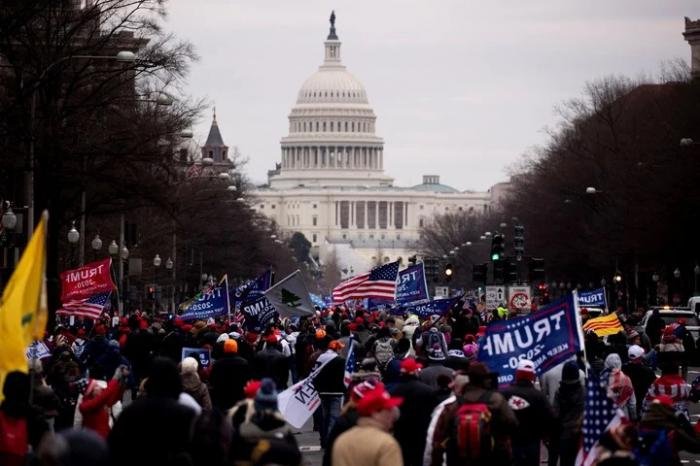
Outgoing U.S. President Donald Trump called on his extremist supporters to stop violent demonstrations in Washington, but insisted there was “election fraud.:
“I don’t want anyone to be hurt (…) I love you, you are very special, but go home. I know you are hurt. We have an election that was stolen from us, and you know it, especially from the other side,” said Trump according to Telesur TV.
The outgoing president warned that this is a very difficult time, “there was never a time like this, where something like this happened, that something was stolen, from everyone, from you, from me, from the country. It was a fraudulent election”.
Trump’s call came after a group of extremists stormed Congress to prevent certification of Biden’s election victory. At that time, the congress members left the Capitol in the custody of the authorities.
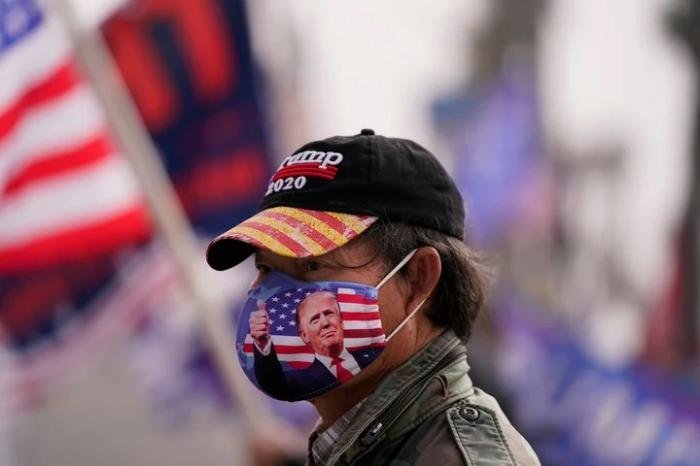
Photo: Internet
On Wednesday, president-elect of the United States, Joe Biden, repudiated the violent invasion by supporters of Donald Trump in the Capitol that caused the cancellation of the certification of the votes.
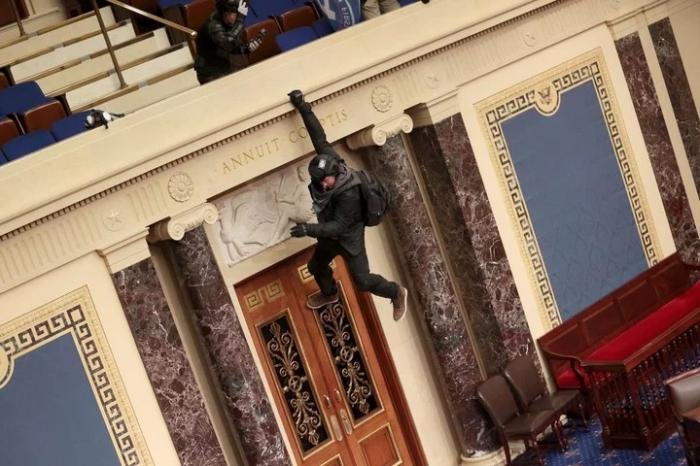
Photo: Internet
“Attacking the capitol, destroying the US Senate, endangering security. This is not a protest, it is an insurrection … I call them mafiosi, they are not attacking democracy,” Biden said.
The president-elect rejected the position of Trump’s fanatics who attacked the certification of last November’s votes, “we are seeing a small number of extremists who are dedicated to breaking the law. This is chaos and it must end now,” he added.
“The job in the coming years is to restore democracy, honor and respect. Solve the problems by looking at ourselves without stoking hatred,” the new White House tenant said.
Finally, he urged all leaders to work together to recover democracy in the country of the North, “democracy is fragile and to preserve it we need people of good will, courageous leaders, who are not dedicated to power, but to the common interest,” he concluded.
U.S. Congress meets Wednesday to certify Biden’s victory
U.S. lawmakers were meeting Wednesday to confirm Joe Biden’s victory in the presidential election amid protests by Trump supporters both outside and inside the Capitol itself.
A session that, every four years, goes unnoticed by most people has as an ingredient this year the announcement of some Republican senators and representatives, who have pledged to support President Donald Trump’s efforts to overturn the result through a formal sessional objection, in an attempt that is almost certain to fail.
The two houses of Congress, the House of Representatives and the Senate, in a joint session this Wednesday will open sealed certificates from all 50 U.S. states containing a record of their electoral votes.
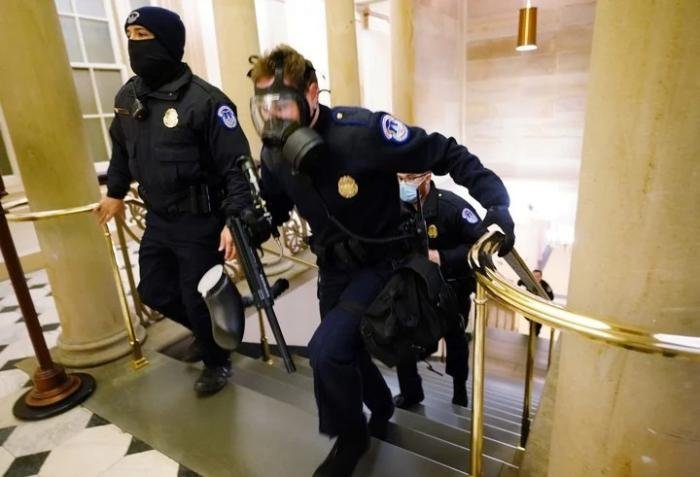
Photo: Internet

Photo: Internet
Under the U.S. system, people cast their votes for “electors,” who in turn formally vote for candidates weeks after the election, which occurred on December 14, when Biden received 306 votes under the electoral college system, compared to 232 under Trump.
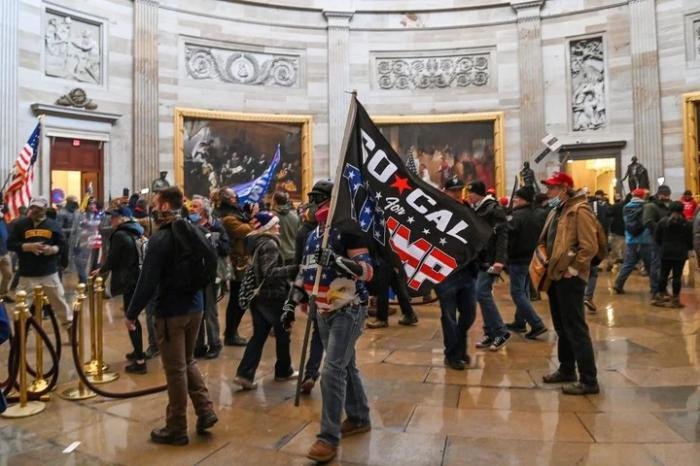
Photo: Internet
Protecting Family Caregivers

The Other Side of Dependency:
Protecting Family Caregivers
Demographic aging is a phenomenon that poses multiple challenges at all levels, which are common to all societies
Translated and edited by Walter Lippmann for CubaNews.
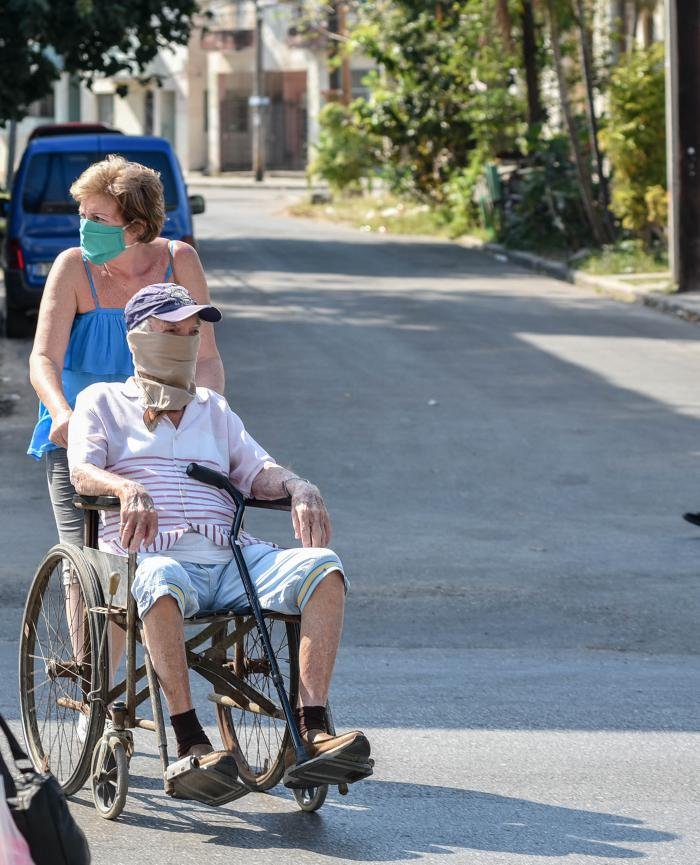
Coronavirus, Ayestaran Street
Three-quarters of the elderly population in Cuba, who are in care, receive informal support, and it is the family that contributes most to this, and of these three quarters, 85% of the informal care is provided at home Photo: Ariel Cecilio Lemus
Demographic aging is a phenomenon that poses multiple challenges at all levels, which are common to all societies.
According to an article by the Center for Demographic Studies at the University of Havana, Cuba has been ranked, after Uruguay, as the country with the second-highest number of elderly people in Latin America and the Caribbean since 2015.
The statistics also reflect that in much of Europe, North America and in some Latin American countries, there is a considerable increase in the number of older people, even those over 85.
Added to this, is the number of people in a situation of disability, as well as the increase in the chronicity of illnesses, particularly neurodegenerative ones, factors that lead to an increase in the number of people dependent on care.
However, the analyses of the phenomenon of population aging have always weighed, more or less correctly, the approaches from the vantage point of those who receive care, and never, or almost never, “which is not the same, but it is the same”, from that of the caregivers.
The current legislation, according to Dr. Leonardo Pérez Gallardo, president of the Cuban Society of Civil and Family Law, of the National Union of Jurists of Cuba, does not contain any reference to the subject. Hence, this is probably one of the novel aspects to be incorporated in the new Family Code, which could be presented to the National Assembly of the People’s Power this year.
Afterward, there will be the popular consultation, discussion with the deputies and final approval, in a referendum, of the resulting text, as dictated by the Eleventh Transitory Provision of the Constitution.
OF CARE AND CAREGIVERS
Although dependency is not a new phenomenon, says Perez Gallardo, “the convergence of different factors such as demographic aging, increased life expectancy and changes in family structure, have led to it becoming a phenomenon that requires urgent and appropriate responses from political, technological, social, health, psychological, family, economic and, of course, legal.
The dependent person, he explains, requires assistance from others for a prolonged period, that is to say, it is not a question of attention for a passing illness, but it implies the need of assistance for those activities of the daily life. This care, constant and lasting, over a long period of time, has been called long-term care, and it involves the provision of assistance with progressive intensity.
Nor can it be lost sight of, in Pérez Gallardo’s opinion, that chronic illnesses and disabilities can be accompanied by functional and cognitive limitations that end up preventing people from enjoying an independent life.
In situations of this nature, family care generally takes on a more prominent role. The key, warns the professor at the University of Havana Law School, lies in the physical and emotional availability of a person to devote himself or herself regularly to the care of that family member, even to the point of giving up or reducing his or her productive or working capacity in order to satisfy the demands of the recipient of his or her services.
In Cuba, according to Dr. Leonardo Pérez, three-quarters of the elderly population in care receive informal support, and it is the family that contributes most to this. And of those three-quarters, 85% of informal care is provided at home.
INFORMAL CAREGIVERS PROTECTED?
Family caregivers, says the President of the Cuban Society of Civil and Family Law, are also called informal caregivers because, unlike professional caregivers, the former are engaged in care for a circumstantial reason, without specialized knowledge and without compensation.
Professional caregivers, on the other hand, are hired and receive financial compensation for their service. Informal caregivers, on the other hand, do so out of altruism, based on the moral duty they owe to their family members, who in many cases are their own parents.
Moral duty which, by the way, and as a lag in a patriarchal and androcentric society, is usually attributed to women, either as daughters, wives or sisters. It has even been assumed as “logical” that it is the children’s wives who take care of their in-laws, especially when they did not have female descendants.
Without a doubt, summarizes Pérez Gallardo, there are many and varied risks that the caregivers assume, because this activity implies, in the personal order, resignation to an adequate life. In the social order, it implies isolation and, in the professional order, loss of their productive capacity and even abandonment, total or partial, of their life project.
For this reason, he emphasizes, “it is necessary to regulate the rights of family caregivers so that the legal system can make them visible, based on the recognition of their autonomy and dignity, as well as the condemnation of any form of manifestation of family or gender violence against them.
“There is an urgent need for legislation that recognizes the right to their own care, to dedicate time to personal activities, to be treated with respect and to receive the due support of the rest of the family members. It is about protecting, from the Law, the other side of the care”.
The protection of caregivers, acknowledges the professor, “should not only be transversal in the field of public law, but also from the private law, capable of providing useful tools to compensate the asset imbalance associated with the performance of the work of caregiving.”
In the words of Pérez Gallardo, “it is necessary to focus on those people who, as caregivers, have been left socially and economically unprotected after the death of the care recipient. To this end, the rules of both family law and inheritance law can be important instruments.
“It would be worthwhile to think of alternatives that, without diminishing altruism, affection, solidarity, dedication and love, encourage care, compensate for silence, emotional and physical overload and facilitate an equitable and fair redistribution of the inheritance”.
In that sense, he points out, “the freedom to bequeath can be a useful alternative and within everyone’s reach. Nobody better than the one leaving [material resources] to compensate the efforts of the caregiver. And, in the absence of the exercise of the power to bequeath, it will be up to the legislator, as they see fit, to establish the best correlation between participation in the inheritance and care for that person in the twilight of life”.
The Chinese model, he suggests, “could be a mirror for the succession rules, from the establishment of more and more flexible rules in the legal succession, suitable to give an answer to the dissimilar social equations that this 21st century has been establishing, in pursuit of a distributive justice in favor of the caretakers”.
IN CONTEXT
The constitutional text, proclaimed on April 10, 2019, establishes in Chapter III Families, of Title v Rights, Duties and Guarantees that
The State, society and families, as far as each one is concerned, have the obligation to protect, assist and facilitate the conditions to satisfy the needs and raise the quality of life of the elderly. Likewise, to respect their self-determination, guarantee the full exercise of their rights, and promote their social integration and participation.
The State, society and families have the obligation to protect, promote and ensure the full exercise of the rights of persons in a situation of disability. The State creates the conditions required for their rehabilitation or the improvement of their quality of life, their personal autonomy, and their social inclusion and participation.
Colleague Albor Ruiz has died in Miami

Colleague Albor Ruiz has died in Miami,
notes of dismay from his friends
 By: Carlos Rafael Dieguez
By: Carlos Rafael Dieguez
January 9, 2021
Translated and edited by Walter Lippmann for CubaNews.
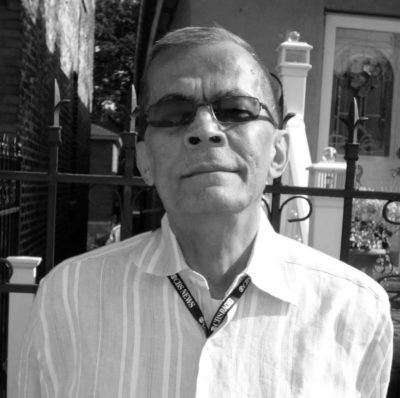
Enny Pichardo Paz al Alma of this great master,
Albor Ruiz It is with the greatest sadness – and on behalf of friends and family near and far – that we share that our dear friend
Albor Ruiz
died Friday night at 10:27 pm at Homestead Hospital in Florida. His was a life rich with many adventures and deep commitments. She had turned 80 years old in November. 27. Details will follow, but please keep it in your thoughts and prayers. Rest in power dear Albor.
Diego Tejedor Cano
You have just given me a lot of grief. In a short time I could see that he was an exceptional human being. I feel like a brother who is leaving.
Carlos Davila is with Albor Ruiz
My friend Albor Ruiz passed away last night. I first met him in 1968-1969 at the University of Florida, and with all the ups and downs of life, I have remained close friends ever since. He leaves a legacy of great memories to many friends, a long list of opinion pieces in various New York newspapers (including Daily News, where he was a staff writer), and a book of poems: ′ ′ “In Case I Die Tomorrow. The book itself is an appropriate epitaph, but these lines (freely translated by me from the last poem in the book) capture its essence: ′ ′. In case I die tomorrow, I want to write this on the wall of dreams: Know all that I never had a Master, neither in New York, San Juan, Miami, nor Havana.” That independence and intransigence were both irritating and endearing. May his memory live on beyond our lives in the legacy he left us in his writings.
Romy Ar Sa
– I just read that the Cuban journalist Albor Ruiz has died and I have already finished sowing my heart into the ground this week. Albor was one of those people you admire even when you don’t agree with the man halfway. A complete being with a humanism that can be perceived from a long distance. He will always have my genuine respect and admiration. To his family my deepest sympathy.
Grace Berti
Dear Albor Ruiz
I met you in New York, through my co-workers at “Marazul”, the travel agency to Cuba, where you used to visit us and then we all went to have dinner at some bodegón with food from your homeland. All of us Cubans worked on the island, except one Uruguayan and I who remained on the periphery of meetings and conciliations, but very close in the friendship and enormous affection that we developed during those years. A journalist for the Daily News, always advocating for the rights of minorities, you arrived with a book as a gift when you knew I was returning to Argentina and which I still keep in my library: “The mountain is an immense green steppe”.
We met again on Facebook and there I met your poetry. Did you know that you were leaving and that’s why your last book is called “In case I die tomorrow”
Goodbye, adventurous, brave, coherent, beautiful person!
THE SUN BURNS THE AFTERNOON
The Sun burns the afternoon
beyond my window
and in my memory Havana,
regal in its poverty, it burns.
I ask God to keep her
as if I believed in Him,
always to my memories faithful.
I am who I always was,
what I lived, lives in me
a little bile, a little honey.
A.R.
Ivette Cortes feels disconsolate.
Albor Ruiz
My dear Friend! I just thought of you this morning upon awakening and although our paths haven’t crossed in many years, I thank God for Facebook. For it has kept us in touch through these many years. So very sad to hear the news of your passing. You were a great force in life and you shared your wisdom and opinions freely and loudly. They were always welcomed to my ears and in my heart. I will miss your news columns and your inspirational, animated comments, especially about politics! I would love to hear your thoughts about what’s going on right now. I am proud to call you my friend and I’m a better person for having known you. Rest In Peace my loving friend!
About this son of Cuba, from the City of Cardenas, Dr Julio Ruiz wrote on his Facebook wall
DEAR FRIENDS ALBOR PASSED AWAY AT 10:27 PM. MY DEEPEST CONDOLENCES TO HIS FAMILY. HE WILL BE REMEMBERED AND HIS ASHES RETURNED TO CUBA. EPD.
My friend and fellow wrestler Albor Ruiz has been admitted to an intensive care unit (ICU) since this morning. He had to be operated on five times for a fall with three fractures he had in the nursing home where he lived. He was suffering from a debilitating muscle disease called myositis, an inflammation that weakens muscles. He was trying to transfer from the toilet to a wheelchair, and as he told me, “………” He was already in rehab recovering although according to his sister Enid, the last two days were not going so well. Today he woke up with a lack of oxygen, with difficulty breathing, he had to be intubated and taken to the Homestead Hospital which was the closest hospital. The PCR was negative twice, but he has a pneumonia that covers both lungs. His prognosis is severe.
Albor is one of those exceptional and unique beings, of the very few I have known in my life, Vicente Dopico, his friend, was another. I met him in the 70’s thanks to my friend Andrés Gómez. I got to know his parents when they lived in Miami Beach. He has a sense of humor like many of my generation, a mocker. I am not his oldest friend, but possibly the oldest of them.
My generation is a generation politicized by all our experiences of the 60’s, and although we are grown up, which sometimes we don’t realize, we haven’t changed that much in sixty years, except for the aches and pains.
I am not religious, but neither am I an atheist, agnostic is the word, as a doctor I am clear about where we come from and where we are going, without fear.
For those who have met him virtually through these FB pages, I can attest that FB does not do him justice.
In his will he asks that if he should die, his ashes be buried in Cuba. In the past, other comrades in struggle are buried in the pantheon of the exiled revolutionary patriots at the entrance to the Colon Cemetery. José Marti’s parents also lie there. We will try to fulfill their wishes
May God protect you.
Rafael Hernandez
Thank you, Julio. Death is a close presence, which accompanies us every day and can be expected in peace with oneself, especially when one has chosen a way to live and fight. It has always impressed me, in the midst of so much human misery, how you have remained true to yourselves, even in the moments when you did not have the understanding of this side. A tight hug for my Dawn on your journey.
Cuban journalist Albor Ruiz has passed away

Cuban writer and journalist Albor Ruiz has passed away
He worked hard from the United States to achieve the Dialogue of 1978, a space that marked the beginning of an irreversible process of rapprochement between Cuba and its emigrants
Author:

Web Editor | digital@juventudrebelde.cu
Translated and edited by Walter Lippmann for CubaNews.
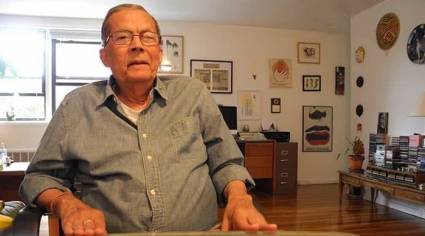
He had, in the words of the Progreso Semanal editorial, “a life rich in many adventures and deep commitments” with the Homeland. Author: Internet Published: 09/01/2021 | 05:10 PM
his Friday night, January 8, Albor Ruiz Salazar died of severe pneumonia at Homestead Hospital in Florida.
He left Cuba at the age of 20 on November 20, 1961. He studied Political Science and Philosophy in Florida. He was a columnist for the Daily News and El Diario La Prensa in New York, writing about issues related to the Latino community in the United States, while he lived in that city, and more recently, for AL DÍA News Media. He is a member of the Hall of Fame of the National Association of Hispanic Journalists in the U.S. But his most prolific work was in defense of the land of his birth and his people. Albor Ruiz, who turned 80 years old on Nov. 27, had, according to the Progreso Semanal editorial, “a life rich with many adventures and deep commitments” to the Homeland.
He played an outstanding role in organizing the movement of young Cubans who gathered around Areito. He was one of those who worked hard from the United States to achieve the Dialogue of 1978, a space that marked the beginning of an irreversible process of rapprochement between Cuba and its emigration. In this regard, Albor himself said: “Returning to Cuba was to remove a huge, gigantic weight that had been crushing me all along. It was a brutal change. Even more so when, without realizing it, the kind of propaganda that they make in the United States about Cuba is getting through to you, even though you know it is a lie, and you do not agree. But when I arrived and saw that, despite the tremendous problems, people were going to the movies, eating ice cream, having parties in the blocks with the children, the old people, the Chinese, the blacks, etc. For me it was a tremendous relief, I don’t really know how to explain it. I felt that these were my people.
As a result of that love and deep commitment to Cuba, he published his book of poems “In case I die tomorrow.
“Back to the Soil, Cuban Land
I am a foreigner and she calls me
Everyone knows that Cuba claims me
In case I die tomorrow”
(excerpt from the poem “Por Si Muero Mañana”, by Albor Ruiz)
Please accept our condolences to his family and friends.
Sixty-two years of building “heresy”

Sixty-two years of building “heresy”
Exactly five years, five months and five days after the actions of July 26, 1953, the Revolution finally came to power
Published: Thursday 07 January 2021 | 08:06:05 pm.
Author:

Elier Ramírez Cañedo | digital@juventudrebelde.cu
Translated and edited by Walter Lippmann for CubaNews.
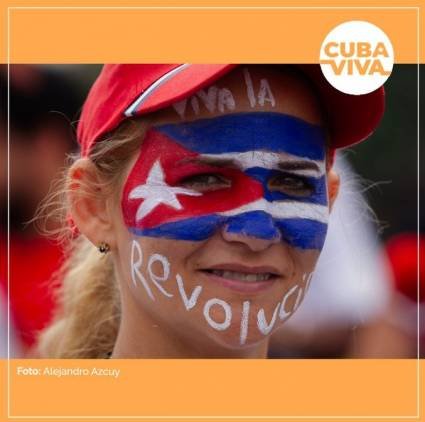
A cry for freedom that inaugurated a new stage of the struggle for independence in our country. Author: Alejandro Azcuy Published: 07/01/2021 | 07:06 pm
A truck full of explosives in Washington, D.C.

Police found a van full of explosives and weapons near the Capitol on the day of the riots
A 70-year-old man is charged with possession of eleven Molotov cocktails, as well as an assault rifle and three handguns
By Russia Today
digital@juventudrebelde.cu
Translated and edited by Walter Lippmann for CubaNews.

Led by Trump, his followers forced their way into the Capitol in Washington. Photo: Reuters Published: 01/06/2021 | 11:02 pm
The District of Columbia Attorney’s Office has filed charges Friday against an Alabama man who allegedly parked a van with 11 Molotov cocktails and other weapons near the Capitol on Wednesday, the same day of the congressional riots.
According to the statement from the Attorney General’s Office, on January 6, Capitol Police officers were warned of the possible presence of explosive devices in the area surrounding the legislative seat. During a protective sweep of the area, agents observed the handle of what appeared to be a firearm in the passenger seat of a pickup truck, which, according to their database, belonged to Lonnie Leroy Coffman, a 70-year-old man from Falkville, Alabama.
When they proceeded to search the vehicle, the police found a pistol, an assault rifle, as well as rifle clips loaded with ammunition and components for the manufacture of eleven Molotov cocktails (glass jars filled with flammable substances, rags and lighters).
Later, Coffman was stopped near his truck when he tried to return to his vehicle. When he was searched, he was found to be carrying two other guns.
The man has been charged with illegal possession of a destructive device, which carries a maximum prison sentence of up to 10 years, as well as carrying an unlicensed gun, which carries a maximum prison sentence of up to 5 years. Coffman remains in custody pending a hearing scheduled for Tuesday, January 12.
Why No Social Outbursts in Cuba?


FROM THE LEFT
Why are There No Social Outbursts in Cuba?
Despite the intense propaganda to which the US allocates tens of millions of dollars each year, the results are overwhelmingly favorable to the revolutionary leadership that Washington has been trying to overthrow for six decades
Author: Iroel Sánchez | internet@granma.cu
November 2, 2020 02:11:30
Translated and edited by Walter Lippmann for CubaNews.
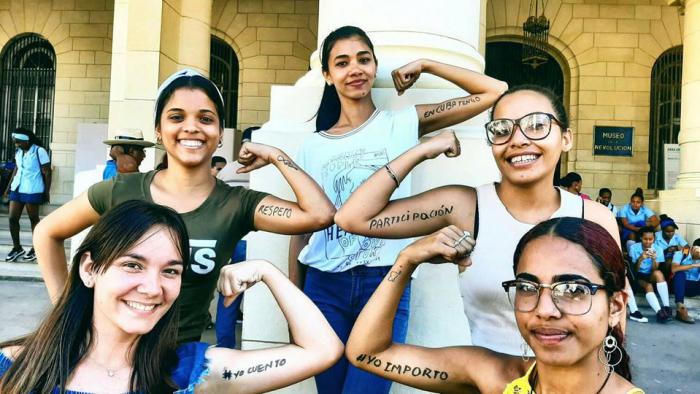
Young people
Photo: Taken from Karla Santana’s Facebook profile
A Brazilian friend who, as a journalist, was in Cuba for a few days, told me of her amazement at how all the Cubans she spoke to know who Bolsonaro is, who Dilma is and who Lula is, which was not the case in other Latin American countries she had visited recently.
The exceptional interest with which Cubans follow international events is something very particular that often goes unnoticed by those of us who live on the island. The social upheavals in Haiti, Chile, Panama and Ecuador, the conflict of powers in Peru, the endless repressions and assassinations of social leaders in Honduras and Colombia, the inherited ungovernability that forced the Mexican government to release a drug trafficker, the unjust imprisonment suffered by the leader of the Brazilian left to prevent his safe electoral victory and the elections in Bolivia and the United States, or Washington’s constant aggressions against Venezuela, can be topics of conversation anywhere in Cuba, from a corner where dominoes are played to a university classroom.
Of course, these conversations do not avoid the serious difficulties that the Cuban economy is going through, against which every week new US government sanctions are announced, nor any of the deficiencies in services with which the citizenry clashes. In these, the impact of the economic blockade can be mixed with bureaucratic laziness and cause discomfort and dissatisfaction.
However, this mixture of economic warfare with internal shortcomings does not cause social upheavals, and when the system – single-party socialism – has been put to the test at the ballot box, as in the recent constitutional referendum. This is so, despite the intense propaganda to which the US spends tens of millions of dollars each year and a well-funded “Cuba Internet Task Force”. The results have been overwhelmingly favorable to the revolutionary leadership that Washington has been trying to overthrow for six decades.
The explanation for the dominant media machine is that the mix of “intense regime repression” and “Cuban relaxation” prevents an outbreak. But in the history of Cuba –from Weyler’s reconcentration to Machado’s dictatorship to Batista’s– no regime based on repression has ever managed to remain in charge of the country for a long time, despite a “relaxation” in which corruption was the dynamic of the functioning of politics and the economy at all levels.
On the contrary, if instead of February 2019, the electoral consultation were to take place now, in the midst of an intensified blockade, the percentage of approval would probably exceed that obtained then, and that would be the result, without a doubt, of the combination of three conjunctural and two structural factors.
Conjunctural factors:
-
The intensification of the U.S. government’s aggressiveness strengthens patriotic sentiment and national unity.
The political effectiveness of the Cuban government, convincingly explaining the relationship of shortages with the increase in aggression, and the way in which the strategy to confront the US sanctions seeks to lessen their impact on the daily life of the people.
-
The international situation with visible failure of neo-liberal policies and discrediting of the formulas of bourgeois democracy
Structural:
-
The massive political culture among Cubans, established for 60 years by Fidel Castro’s teaching, about the nature of imperialism and the project of social justice and national sovereignty of the Revolution.
-
The link between the revolutionary leadership and the people, continued by the leadership of Raúl and supported by Díaz-Canel, which has reinforced the perception that the government listens to the people and works for them.
-
No Latin American country, of those who right now repress social protest with gunshots and gases and/or openly violate the rules of formal democracy that they themselves defend, has been subjected to economic warfare, to multi-million dollar financing to create an artificial opposition and, much less, to permanent global media and academic lynching of their leaders and their political and social project.
But in spite of all that, it must be recognized that there are dissatisfied people in Cuba, and many of those dissatisfied people are going to Miami. The accumulation of almost six decades of migratory privileges, together with the development of educational capabilities and the state of health brought about by Cuban socialism, make them very competitive with respect to the rest of the non-native communities, but they do not make them freer. More than one million Cubans in the US suffer serious limitations in their relations with their families in Cuba thanks to Trump’s measures; however, there is no news that this causes significant protests there.
Nor do we read anywhere that this public absence of disagreement is attributed to corruption and the repressive practices, not at all democratic, that the ruling class on the island until 1959 seems to have implanted in Miami during its already long stay in that city. This is not to disregard the uplifting example offered by a system that today puts Donald Trump and Joe Biden in competition, in corruption and insults.
Against Restoring Cuba to “Terrorist List”

ATTEMPT to Put Cuba Back on U.S. Terrorist List Condemned
 By Carlos Rafael Dieguez
By Carlos Rafael Dieguez
January 07, 2021
Translated and edited by Walter Lippmann for CubaNews.
Letter from US religious organizations and institutions to the Secretary of State opposing the inclusion of Cuba on the List of State Sponsors of Terrorism.
The Honorable Mike Pompeo
Secretary of State
Washington DC.
Dear Secretary Pompeo,
Press reports suggest that he is considering adding Cuba once again to the list of “state sponsors of terrorism,” and we write to express our strong opposition.
There is no justification for adding Cuba to this list. While the United States has political disagreements with Cuba on a variety of issues, these issues are not related to state sponsorship of terrorism. Adding Cuba to the list of state sponsors of terrorism will be perceived internationally as a political gesture that will undermine US credibility on the issue of terrorism.
Designating Cuba as a state sponsor of terrorism would not only be wrong, but cruel. While it would not tighten existing sanctions on US companies trading with Cuba, it would harm the Cuban people, including families, communities and congregations who are our partners. It would complicate some third country sales to Cuba and discourage foreign investment.
The Cuban economy has received several hard blows in recent years, including US restrictions on family remittances, the contraction in the number of US visitors as a result of travel limitations imposed during this period.
These include the government’s decision to impose a ban on oil exports to Cuba, the COVID blockade, the United States’ efforts to restrict oil shipments to Cuba, and Cuba’s own internal economic challenges. The result has been hardship and scarcity for the Cuban people.
Because our partners in the Cuban churches – congregants, ministers, and their communities – are severely affected by these measures, we have called for their end.
The proposal to add Cuba to the list of state sponsors of terrorism would only worsen this situation and harm those who are already suffering from economic problems.
For all these reasons, we strongly oppose any decision to add Cuba to the list of state sponsors of terrorism and urge you not to do so.
Sincerely,
Alliance of Baptists
American Baptist National Missionary Societies
Armenian Orthodox Church
Church World Service
Committee of Friends of the National Legislation
Global Ministries of the Christian Church (Disciples of Christ) and the United Church of Christ
Latin America Working Group
Mennonite Central Committee Washington Office, USA
National Council of Churches of Christ USA
Pax Christi USA
Presbyterian Church (USA)
United Church of Christ, Justice and Witness Ministries
United Methodist Church, General Board of Church and Society
Subscribe to Blog via Email
| M | T | W | T | F | S | S |
|---|---|---|---|---|---|---|
| 1 | ||||||
| 2 | 3 | 4 | 5 | 6 | 7 | 8 |
| 9 | 10 | 11 | 12 | 13 | 14 | 15 |
| 16 | 17 | 18 | 19 | 20 | 21 | 22 |
| 23 | 24 | 25 | 26 | 27 | 28 | |



You must be logged in to post a comment.